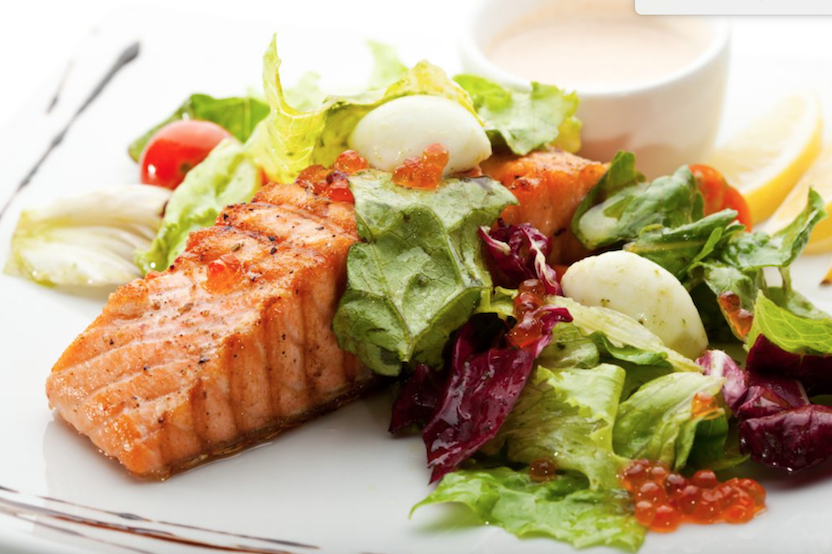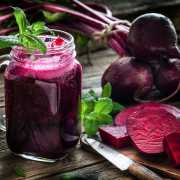Constant hunger and increased appetite can sabotage weight loss and possibly even lead to weight gain. This holds especially true when you regularly give in to overeating. Now, it’s important to understand that hunger and appetite are generally complex processes driven by a number of factors including your mood, stress levels, body weight, activity habits, and hormonal status.
Still, it is possible to curb hunger and suppress appetite naturally through diet and exercise. Here are some simple strategies to help you do just that.
Consume High-Protein Foods
Regularly consuming high-protein foods can naturally curb hunger by increasing feelings of fullness making it easier to eat less and lose weight. Adequate consumption of protein is also critical for preserving metabolism-revving muscle tissue, which further promotes weight loss. When it comes to choosing protein sources, fish and seafood, poultry, lean meats, low-fat dairy foods, and whole soy products are best.
You can also get a good supply of protein from a combination of nuts and seeds, whole grain foods, and legumes (beans, peas, and lentils).
Related Article: Nutrition Basics: Your Daily Protein Intake
Fill Up on Dietary Fiber
Fiber-rich foods inherently digest and absorb slowly, making you feel fuller, sooner and for a longer period of time, which helps reduce the urge to overeat. Regular intake of fiber also promotes healthy digestion and waste removal from the body in ways that encourage weight loss. For effective hunger and appetite control, it’s best to consume foods naturally high in fiber like vegetables and fruits, whole grains and legumes, as many pre-packaged products with added fiber tend to lose a lot of it during processing.
Related Article: How Different Types of Fiber Affect Your Health
Don’t Shy Away from Eating Fat
Believe it or not, consuming a diet rich in high-quality fats (monounsaturated and omega-3s) is one of the best ways to suppress hunger and curb appetite, as they’re generally slow to digest, filling, and quite flavorful. Foods like avocado, nuts, and olive oil are naturally rich in monounsaturated fat while oily fish (salmon, trout, and tuna), walnuts, flaxseeds, and soy products house large amounts of omega-3s.
Regular consumption of these “good” fats also improves the body’s ability to burn stored fat, especially in the belly area.
Related Article: Good Fats Versus Bad Fats: What You Need to Know About Dietary Fat
Put in a Real Sweat Session
Performing cardiovascular (cardio) exercise on a regular basis can substantially lower your appetite and overall feelings of hunger. Doing so also burns a whole lot of calories, which greatly supports weight loss. When performed at a moderate-to-high-intensity and for a long duration (45 minutes or more), cardio suppresses the release of ghrelin, a hormone that’s known to stimulate appetite and hunger.
In addition to suppressing ghrelin, cardio stimulates the release of another hormone called peptide YY, which naturally curbs appetite.
Related Article: How to Perform Cardio Exercise the Right Way
Drink That Water
Inadequate water intake leads to dehydration, which is characterized by extreme thirst. Since signs of thirst and hunger are very similar, confusing the two can easily lead to overeating and, ultimately, weight gain. For successful weight loss, I highly recommend consuming at least 12 ounces of water each day. You should also replace juice, soda and other high-calorie, carbonated and/or caffeinated beverages with water, as they tend to trigger dehydration and promote unnecessary weight gain.
Related Article: Why Water is More Important Than Food
And there you have it! Five simple and natural ways to suppress hunger and appetite for weight loss. Now, it’s important to understand that implementing these strategies doesn’t guarantee that you won’t overeat. In fact, many people unknowingly overeat due to reasons unrelated to hunger and appetite (emotional overeating and food addiction). Just acknowledge the fact that you may experience occasional cravings that lead to setbacks and develop appropriate steps to address them along the way.
Related Article: Eating Without a Conscience: My Personal Battle with Food Addiction







